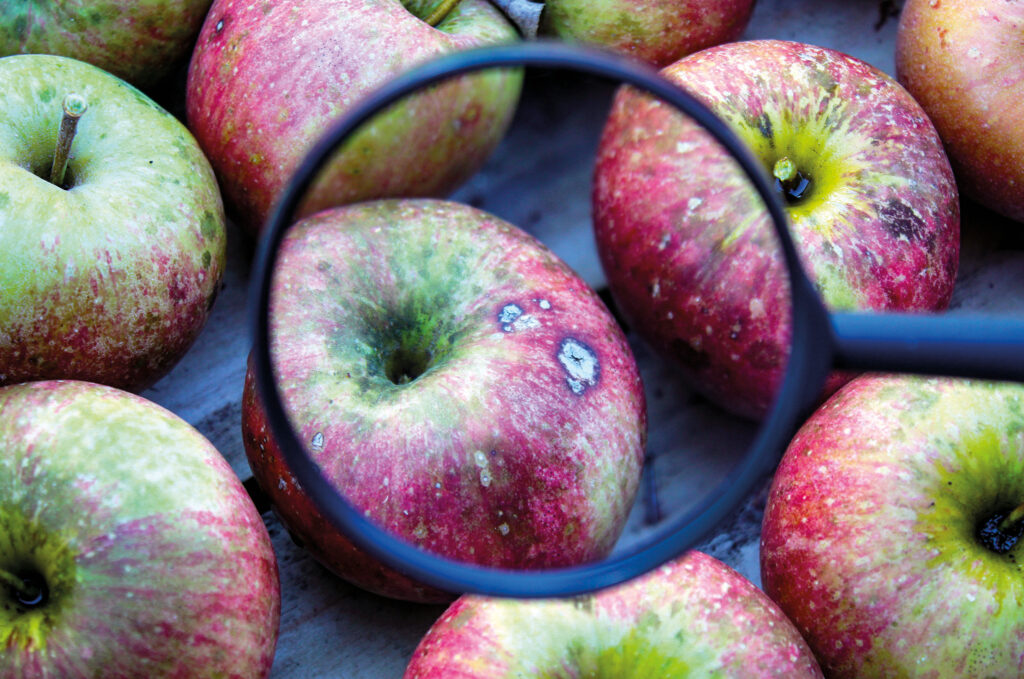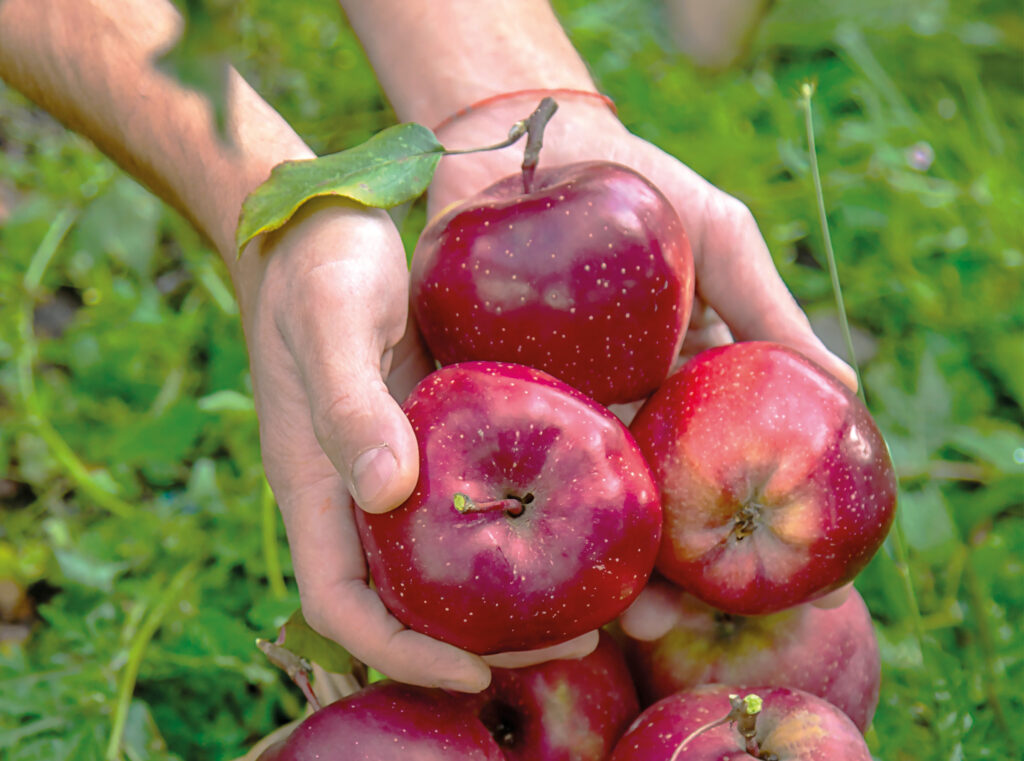Early season nutrition: Mitigating the impacts of extreme weather
4th January 2023
Agronomist Mike Wainwright of Hortifeeds discusses the importance of managing plant stress in an extreme, unpredictable and constantly evolving climate

In the UK, we are lucky to have a mild maritime climate; but this is also coupled with being perched on the edge of the continental landmass, meaning that while our weather is normally benign, we are still occasionally subject to extremes of heat, cold, rainfall, and all the other weather events that Mother Nature can throw at us.
Farmers and growers have always had to adapt to harsh weather events, both in terms of what crops they can grow, and how they grow them. However, over the last few years we have increasingly seen the effects of climate change kicking in, with weather events generally becoming more extreme and more unpredictable. Consequently, mitigating the impacts of extended periods of cold weather, excessive rainfall and flooding, late frosts, extreme heat and drought have become an even more important part of all fruit growers’ regimes.

Stress relief
Alongside the nutritional requirement of setting and budding fruit plants, managing stress relief has become more important than ever; and growers who have successfully managed these issues have seen improvements in quality, yields and shelf-life throughout the season.
Modern larger-scale fruit production is based on optimising production inputs to maximise yield potential, and in this system the difference between profit and loss is often determined by very fine margins. Growers are increasingly finding that biostimulants can help bridge the gaps that can affect those fine margins and make a significant difference to overall crop performance.
When the stresses of fruit load are over, post-harvest plants need to recover and rebuild energy reserves ready for the winter, and begin preparation for the following spring. It is important to give strawberries (and other soft fruit) optimum levels of nitrogen to help build reserves and replenish crowns to maximise potential for the coming season. Phosphorous, calcium, boron and zinc are all important in establishing strong, resilient buds and roots that are best able to withstand fungal disease attacks.
In grape vine production, it is important to provide good, long-lasting nitrogen in the spring, usually in the form of a single granular application. A correct balance of trace elements is also vital to ensure optimal photosynthesis, and pollination, fruit set and quality. Hortivitis is a specially designed foliar vine product which includes magnesium, sulphur, iron, manganese, zinc and boron, all of which combine to act as an effective chlorophyll booster and provide nutrition through the vital growth and fruiting stages.
Phosphites are well-known throughout the industry as fast-acting biostimulants which have been shown to activate plant defence mechanisms and improve overall production and fruit quality. Hortiphyte is a leading potassium phosphite biostimulant that is easily taken up by the plant in the early season when cold and wet conditions can make the uptake of phosphorous more difficult, potentially hindering root development and thereby leaving the plant vulnerable to fungal disease attacks.
Hortiphyte is best applied in a drench on young plants before potting on, or via regular fertigation/foliar application to all soft fruit plants whether grown in substrate or soil. If plants are to be kept on, a late-season application post-harvest can be beneficial in helping to strengthen the plant’s own defence systems in preparation for the next season.
Micronutrients including boron, zinc and iron play an important role in maximising photosynthetic processes, fruit and bud set and overall plant health. Hortifeeds Soft Fruit Soluble Mixes are designed to include the optimum levels of all nutrients for fertigation feeding.
It is important to provide the correct balance of major and micro-nutrients to optimise all the many biological processes within the plant that support pollination and fruit production, maximising Class
1 yield and reducing the occurrence of aborted
and malformed fruit.
Seaweed has long been proven to help fruit plants recover from stress events including excessive rain, heat, cold and drought conditions. HortiBoost is a seaweed-based biostimulant which also contains an essential amino acid complex, fulvic acids, humic acids and a balanced trace element package that is rich in iron to help ensure deficiencies associated with stress events are mitigated and stress recovery is optimised. HortiBoost can be applied either via fertigation or by foliar application to a range of fruit crops, with good results coming from regular little and often applications by tank mixing with other spray inputs.
Even distribution
As discussed above, climate change is increasingly affecting crop production in many and various ways. Extremes of heat and drought have become much more of an issue for growers, with liquid wetting agents now playing a key role in ensuring water and nutrients are distributed evenly throughout the substrate, and increase the efficiency of your feed programme. This can be particularly useful where coir or peat bags are used for more than one growing season.
HortiHydrate Bio wetting agent is a specially developed organic liquid surfactant which provides the same key benefits and performance as traditional synthetic wetting agents, but using sustainable ingredients without the negative environmental impacts associated with standard products created from fossil fuels. HortiHydrate Bio has also been approved for use in organic growing systems by the Soil Association.
Calcium plays a very important role in the formation and structure of fruit, providing the framework that will determine final fruit quality and shelf life. Movement of calcium within the plant occurs in the xylem vessels via the transpiration flow. Plant Impact Ametros contains calcium, nitrogen and zinc along with patented CaT technology which helps to mobilise calcium and increase its concentration in fruit cells where it is needed most. Ametros has been shown to increase yield, quality and shelf life in soft and top fruit and can also be used to correct calcium deficiencies.
